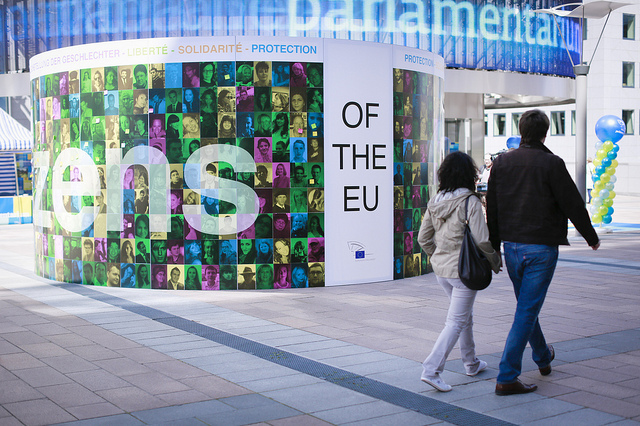Every year, the 9th of May is celebrated across Europe by young and old, by cities and schools, by Europeans and by their non-European friends. They organize competitions, concerts, flash mobs, or activities with a more educational component such as identifying EU member states on a map or associating them with their national flags.
In Brussels, the day is celebrated with a Festival of cultural events, food markets, street and art exhibitions, and Citizens’ Dialogues. Additionally, the EU institutions in Brussels and the EU representations in European member states open their doors to the public. The celebrations have a different theme each year. This time, events are being organized to commemorate “Europe in the World.” While European diversity and respect for human dignity, liberty, democracy, equality, the rule of law and human rights are the founding principles of the EU, political courage is actually what made the EU what it is today.
Europe Day plays the role of a unifying European symbol, but it is also an important historic day that teaches the lesson of political foresight. On this day, 65 years ago, French Foreign Minister Robert Schuman gathered international correspondents at Quai d’Orsay on the shores of the river Seine to announce his famous Declaration, which would lay down the European Union’s foundations. The story behind the Declaration is one of intense diplomacy, compromises and concessions. Schuman’s idea, in his own words, was to make war not only unthinkable but materially impossible by bringing coal and steel production in France and Germany under the supervision of a single supranational High Authority. He was unsure the proposal would get the support of other European countries, even Germany’s support for that matter. But he gave it a shot.
The main objective would be to preserve peace after World War II, the military conflict that killed 60 million people and devastated Europe. A year before Schuman’s Declaration, the North Atlantic Treaty Organization (NATO) grouped Western European democratic states, Canada and the USA in a military alliance. Also before Schuman’s Declaration, French political economist and diplomat Jean Monnet had presented his plan of controlling Germany’s coal industry for France’s benefit and negotiated an agreement with the USA, which cleared France of its debt. Although these steps built some momentum for the general acceptance of Schuman’s plan, there was no guarantee that it would prove so successful. Furthermore, the French still remembered the Nazi troops invading Paris 10 years earlier.
Thus, Schuman proposed to bring the coal and steel industry of Germany and France under a common authority with participation open to other states, to ensure that Germany’s industry would not be used to reaffirm its military power again. West Germany’s then newly elected Chancellor, Konrad Adenauer, liked Schuman’s idea and proceeded to build a strong relationship with France, the United States, and Israel. The European Coal and Steel Community, as it was named, got the immediate support of not only Germany, but also of Italy, the Netherlands, Belgium and Luxembourg. Jean Monnet became its first President. The ECSC was therefore the basis upon which the future European Union would be built. Schuman’s and Monnet’s political boldness and vision at the time were essential in laying the ground for what was to become a prosperous, democratic and peaceful Europe.



